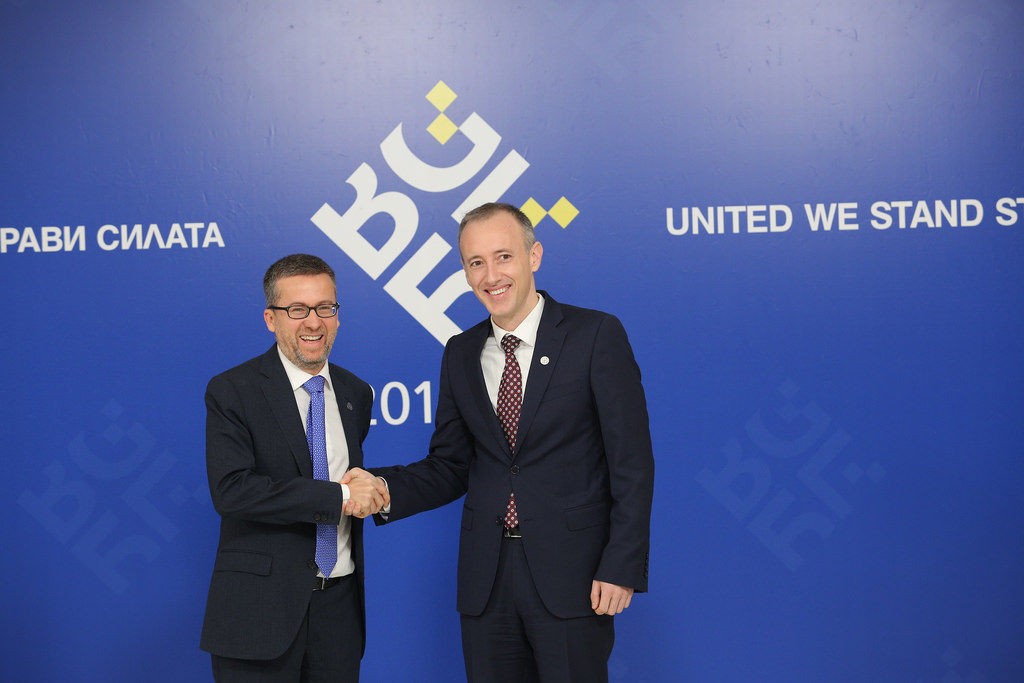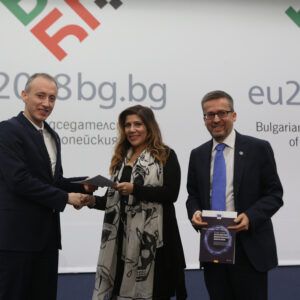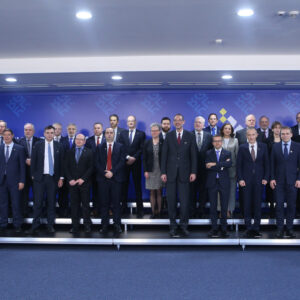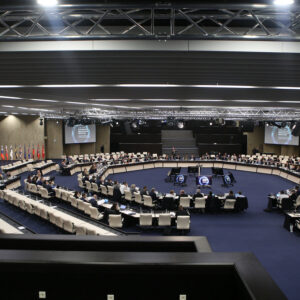Investment in human capital and the possibilities for stimulating innovation were in the focus of the informal meeting of EU Research ministers in Sofia on 2 February 2018. In a discussion about the future of research and innovation in Europe, Ministers exchanged views on instruments, strategies and best practices in order to start the process of finding a common European vision during the coming months.
“Knowledge transfer is a key challenge for the EU, which is a world leader in the field of research and innovation. We need to look for a way to put this knowledge more easily to the benefit of society and industry. The digitalisation and transformation of entire economic sectors, the demand for new skills, and the pressure on education to generate quality and innovative lifelong learning pose questions to policies for funding research and innovation”, said the Bulgarian Minister of Education and Science Krasimir Valchev. “In the process of preparing the Ninth Framework Programme there should be an additional requirement for increasing knowledge transfer and improving the access to scientific results for citizens, companies and even public organisations. People are the most important resource we have at our disposal, and efforts must start at the point of education”, Mr Valchev added.
Ministers discussed the mid-term evaluation of the Horizon 2020 Framework Programme, underlining that it is a landmark example of targeting scientific funding to important day tasks such as health, security, sustainable agriculture and bio-economy, clean and efficient energy, ecology and climate, and more. However, the assessment shows that the so-called “innovation gap” continues to be present and new measures are needed to increase the benefits of research funding and dissemination of results in all regions of the European Union. The Bulgarian Presidency stressed that cohesion policy and the next generation of structural funds, as well as their synergies with the Framework Programme and Erasmus+ in terms of capacity building and the opening of the potential of Europe’s peripheral regions, should be priorities in the next multiannual financial period.
During the discussions, the Independent High-Level Group of Innovators presented their 14 recommendations on what the new European Innovation Council should do under the motto “Europe is back: Accelerating breakthrough innovation”. Ministers welcomed the recommendations and called for equal conditions for participation of all innovators.
Background
Horizon 2020 is the financial instrument implementing the Innovation Union, an initiative aimed at securing Europe’s global competitiveness. It provides nearly €80 billion of funding available over 7 years (2014 to 2020).
Related links
Report “Europe is Back: Accelerating Breakthrough Innovation”



